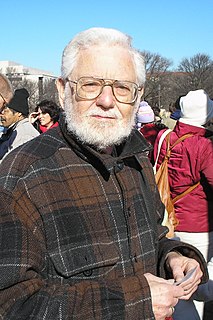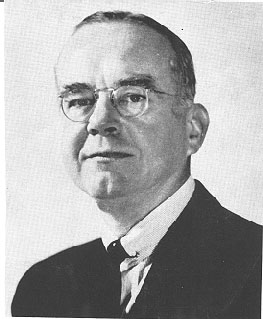A Quote by Frederick C. Beiser
There is no comfortable middle path where we get to provide a rational justification for our basic moral, religious and common sense beliefs.
Related Quotes
The ghostly presence of virtual particles defies rational common sense and is nonintuitive for those unacquainted with physics. Religious belief in God, and Christian belief that God became Man around two thousand years ago, may seem strange to common-sense thinking. But when the most elementary physical things behave in this way, we should be prepared to accept that the deepest aspects of our existence go beyond our common-sense intuitions.
The moral justification of capitalism does not lie in the altruist claim that it represents the best way to achieve 'the common good.' It is true that capitalism does -- if that catch-phrase has any meaning -- but this is merely a secondary consequence. The moral justification for capitalism lies in the fact that it is the only system consonant with man's rational nature, that it protects man's survival qua man, and that its ruling principle is: justice
Deep religious beliefs stemming from the Old and New Testaments of the Bible inspired many of the early settlers of our country, providing them with the strength, character, convictions, and faith necessary to withstand great hardship and danger in this new and rugged land. These shared beliefs helped forge a sense of common purpose among the widely dispersed colonies - a sense of community which laid the foundation for the spirit of nationhood that was to develop in later decades.
It is taboo in our society to criticize a persons religious faith... these taboos are offensive, deeply unreasonable, but worse than that, they are getting people killed. This is really my concern. My concern is that our religions, the diversity of our religious doctrines, is going to get us killed. I'm worried that our religious discourse- our religious beliefs are ultimately incompatible with civilization.
What our leaders and pundits never let slip is that the terrorists-whatever else they might be-might also be rational human beings ; which is to say that in their own minds they have a rational justification for their actions. Most terrorists are people deeply concerned by what they see as social, political, or religious injustice and hypocrisy, and the immediate grounds for their terrorism is often retaliation for an action of the United States.
The middle path makes me wary. . . . But in the middle of my life, I am coming to see the middle path as a walk with wisdom where conversations of complexity can be found, that the middle path is the path of movement. . . . In the right and left worlds, the stories are largely set. . . . We become missionaries for a position . . . practitioners of the missionary position. Variety is lost. Diversity is lost. Creativity is lost in our inability to make love with the world.
There are moments in our lives when we summon the courage to make choices that go against reason, against common sense and the wise counsel of people we trust. But we lean forward nonetheless because, despite all risks and rational argument, we believe that the path we are choosing is right and best thing to do. We refuse to be bystanders, even if we do not know exactly where our actions will lead.
Our two nations have a lot in common, when you think about it. We were both founded by immigrants escaping religious persecution in other lands. We both have built vibrant democracies. Both our countries are founded on certain basic beliefs, that there is an Almighty God who watches over the affairs of men and values every life. These ties have made us natural allies, and these ties will never be broken.
In this world laws are written for the lofty aim of "the common good" and then acted out in life on the basis of the common greed. In this world irrationality clings to man like his shadow so that the right things get done for the wrong reasons - afterwards, we dredge up the right reasons for justification. It is a world not of angels but of angles, where men speak of moral principles but act on power principles; a world where we are always moral and our enemies always immoral; a world where "reconciliation" means that when one side gets the power and the other side gets reconciled to it.
Modern liberalism, for most liberals is not a consciously understood set of rational beliefs, but a bundle of unexamined prejudices and conjoined sentiments. The basic ideas and beliefs seem more satisfactory when they are not made fully explicit, when they merely lurk rather obscurely in the background, coloring the rhetoric and adding a certain emotive glow.































